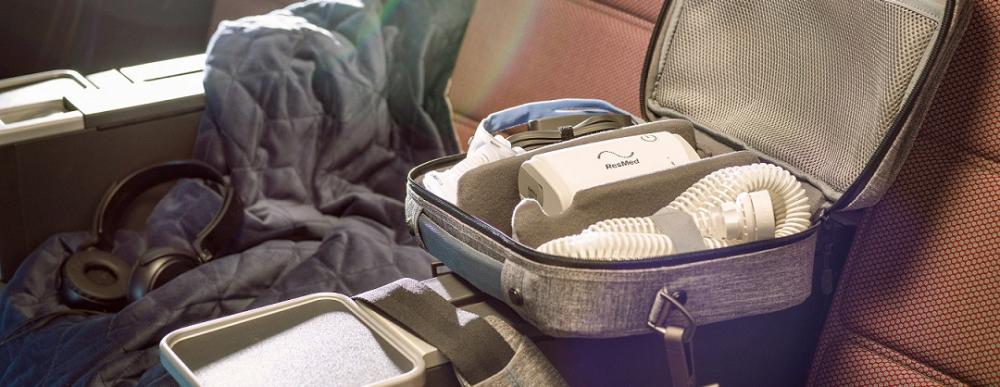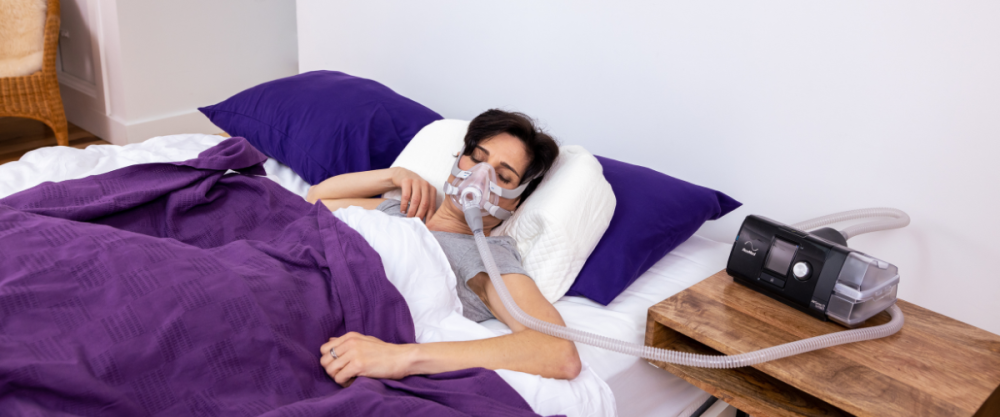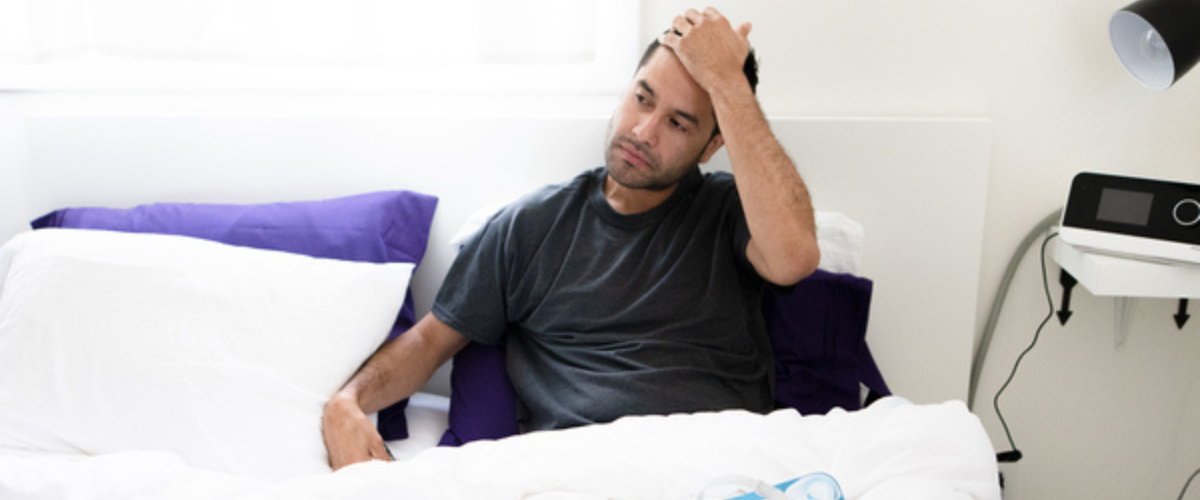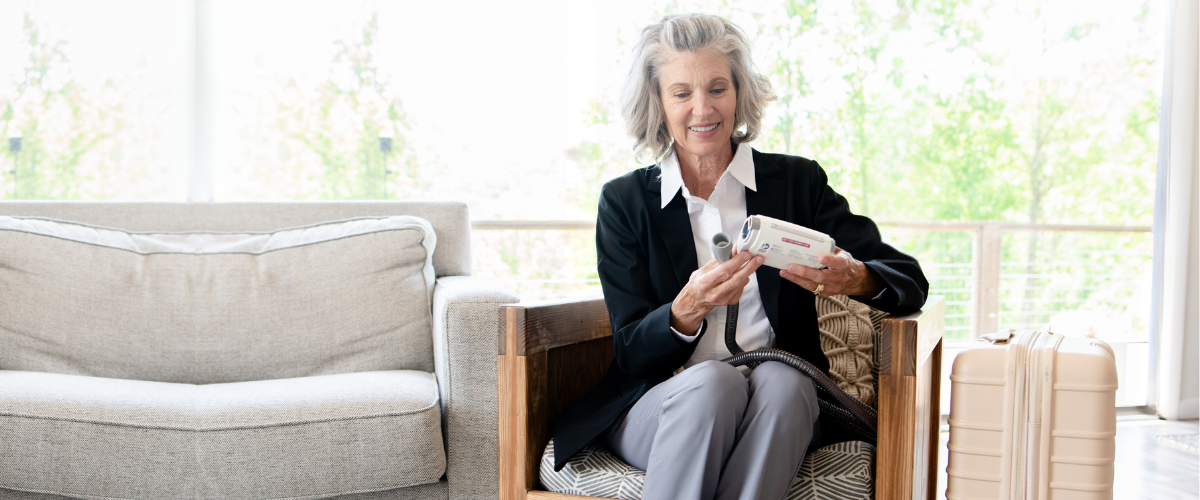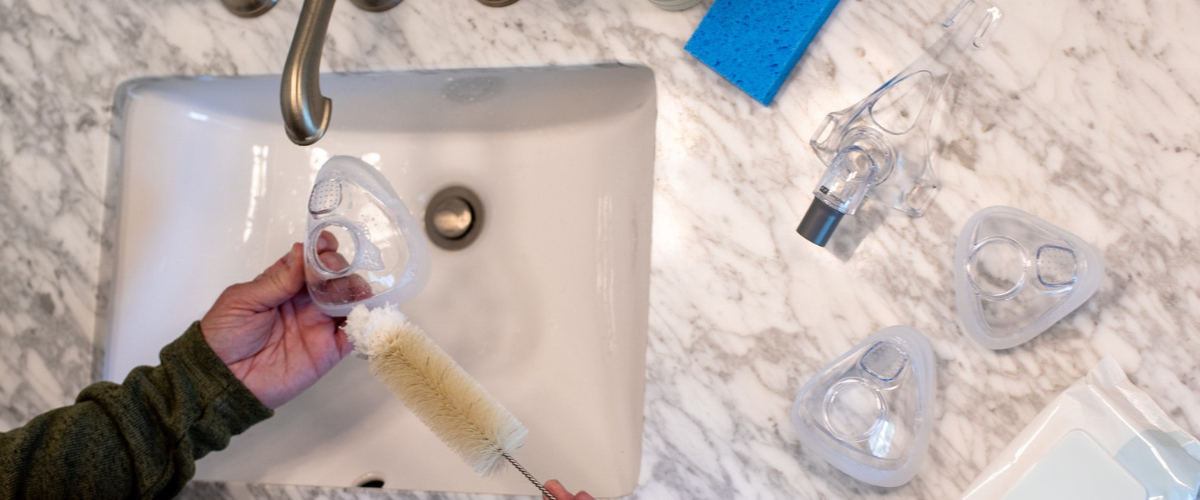7 Natural Ways to Stop Snoring That You Can Use Tonight
- Dec 9, 2021

While snoring may cause you to sleep alone, you’re not alone in snoring. In fact, according to the American Academy of Otolaryngology, nearly half the population snores occasionally, and almost 25% of people snore habitually!
But that statistic is probably no comfort if you’re the one sawing logs (or the sleeping partner of someone who does). That’s why we’ve put together answers to some of the most common questions about snoring, and tips to stop snoring naturally that you can put into practice right away. We’ll also take a look at some long-term strategies to stop snoring, as well as signs that it’s time to talk to a doctor about it.
Table of Contents
Is It Bad to Snore?
By itself, occasional mild snoring is usually harmless– beyond reducing the quality of your sleep (not to mention the sleep of those around you).
However, habitual snoring– especially very loud habitual snoring– could be a sign of a larger sleep disorder, like obstructive sleep apnea.
What Causes Snoring?
Snoring happens when the soft tissues in your upper airway partially block your airflow, causing them to vibrate as air passes by. This can take place in the nasal passages, throat, or soft palate– that spongey, muscular area at the back of your throat.
Occasional snoring can be caused by temporary conditions, like allergies, stuffy nose, sinus infections, and nasal congestion. These conditions irritate and inflame the tissues enough to cause a blockage of air. Snoring can also be caused by lifestyle choices like drinking alcohol or taking sedatives, which relax the throat muscles until they partially collapse.
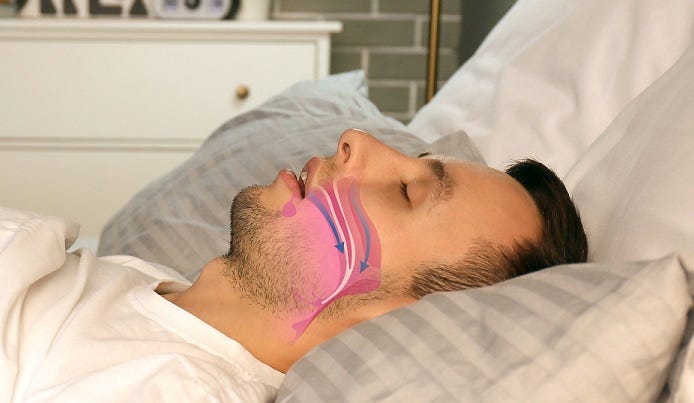

Long-term causes of snoring tend to be more difficult to address. These include:
- Obesity. Being overweight can narrow your airways due to excess tissue, as well as put additional pressure on your neck and chest while lying down.
- Anatomy. Some people simply have thick soft palates, long uvulas (the dangling part in the back of the throat), or naturally narrow airways.
- Nasal Obstruction. Problems like a deviated septum or enlarged turbinates can reduce your airflow, making it more difficult to overcome the blockage.
- Swollen Tonsils or Adenoids. People who often get throat infections are also frequently snorers.
- Obstructive Sleep Apnea. OSA is a dangerous sleep disorder where the blockage in your airway is enough to cause you to stop breathing repeatedly throughout the night.
How you go about stopping your snoring depends heavily on what is causing it. If you experience only mild or occasional snoring, it’s worth trying out one of the following tips!
7 Tips to Stop Snoring to Try Tonight
1. Change Your Sleeping Position
When you sleep on your back or stomach, gravity can make your tongue or throat muscles relax into your airways, worsening your snoring. If your snoring is mild, it may be enough to simply try sleeping on your side.
An inexpensive way to train yourself into side sleeping is to try putting tennis balls in your shirt to stop you from rolling onto your back. Or, for something a little more comfortable, a sleep noodle will buckle securely around your lower back. Over time you’ll adjust to the new sleeping position to the point that you no longer need a positional aid.
2. Try Nasal Strips or Nasal Dilators
Nasal strips stick like a band-aid over the bridge or your nose, while nasal dilators rest gently inside your nostril. In either case, they work to open your nasal passages and allow you to breathe easier. The increased airflow may provide enough air pressure to overcome your snoring.
3. Avoid Alcohol or Sleeping Pills
If you struggle with snoring, it’s best to stop drinking within a few hours before bed, and to avoid over-the-counter sleep medicine. These can have a sedative effect which relaxes your throat muscles, allowing them to collapse into your airways and cause snoring.
4. Use a Humidifier
Breathing in dry air can irritate your throat and nasal passages, causing them to swell and reduce your airflow. Humidification adds moisture to your air, which can help to keep your nasal passages clear and soothe the irritation that may cause snoring.
5. Remove Environmental Allergens
Excessive dust, dander, and mites can irritate the airways even in people who don’t ordinarily suffer from allergies. Reducing these allergens may just be enough to eliminate mild snoring.
If you find yourself experiencing allergy-like symptoms at night, but not during the day, it may be worth trying a deep clean of those dusty, hard-to-reach areas of your bedroom.
6. Get a New Pillow
No, we don’t mean a pricey anti-snoring pillow. Propping up your head may or may not help to open up your airways, but it could also lead to neck pain– especially for side sleepers.
But if you’ve had the same pillow for more than a year, it’s probably accumulated quite a bit of dust, sweat, skin oil, and dust mites. Not only can these allergens irritate your tissues, but they can also turn your pillow into a breeding ground for germs and bacteria which can cause chronic sinus infections.
7. Drink Green Tea with Honey
While this won’t be effective against chronic or severe snoring, hot green tea with honey may do the trick if your snoring is caused by a cold or sinus infection. Both of these home remedies may have anti-inflammatory effects, plus the warmth will soothe the irritation in your throat.
4 Long-Term Ways to Stop Snoring
While the tips above may help for occasional mild snoring, fixing chronic snoring will likely take something more drastic than a few lifestyle changes. If you snore more than a few nights per week, or snore loudly enough to be heard outside of your room, you may need to consider one of the following:
- Weight Loss. Obesity is one of the conditions most strongly associated with snoring, because the extra tissue can narrow your airways. If your snoring began around the same time as weight gain, the two may be related.
- Quit Smoking. Everyone is aware of the health problems associated with smoking, but not many people mention that smoking can worsen snoring. The smoke can irritate and inflame your throat and nasal passages.
- Consider Surgery. If your snoring is caused by the size or shape of your anatomy, it may be that surgery is your best option. This can involve adjusting the alignment of your lower jaw, correcting a deviated septum, or removing excess tissue.
- Neuromuscular Stimulation. New research suggests that strengthening your tongue may help some to reduce snoring severity and duration. A new device called the eXciteOS promises to strengthen your tongue in just 20 minutes a day of daytime therapy, but it may not be appropriate for everyone. Learn more about daytime therapy and the eXciteOSA device.
When Should I See a Doctor About Snoring?
While occasional snoring is extremely common, and usually fairly harmless, chronic loud snoring is one of the most common signs of a sleep disorder called Obstructive Sleep Apnea.
OSA is a serious condition associated with high blood pressure and an increased risk of heart attack and stroke.
Sleep apnea can be difficult to recognize, because not everyone who snores will have OSA, and not everyone who has OSA snores. You should talk to your doctor if you also experience one or more of the following symptoms:
- Excessive daytime sleepiness
- Difficulty concentrating during the day
- Mood changes, including depression or sadness
- Frequently waking up gasping, coughing, or choking
- Frequently waking to dry mouth, headache, or sore throat
Your doctor will likely recommend a sleep study, which can be done at a sleep center or from the comfort of your own home. If the sleep study determines that you have OSA, your doctor or sleep specialist will likely prescribe continuous positive airway pressure therapy, or CPAP. CPAP therapy is a non-invasive treatment that uses pressurized air to keep your airways open while you sleep. Depending on the type and severity of your OSA, other treatment options may include a specialized oral appliance or even surgery.
No matter what option your doctor recommends, CPAPsupplies.com is here to help you get a good night’s sleep. From CPAP machines to custom mouthpieces and even positional aids, we’ve got what you need to stop both snoring and sleep apnea tonight.







